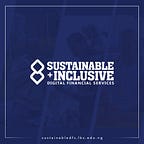For Nigeria’s poor, Covid-19 is just one of a myriad of life hazards
As the entire planet battles against the rage of the coronavirus pandemic, the world’s poor remain evermore vulnerable. And in a country like Nigeria where 50 percent of the near 200 million population already live below the poverty line, getting infected with the novel coronavirus is just one out of a myriad of potential life hazards.
The coronavirus pandemic has set the Nigerian economy on edge and the poor are the ones who will feel the turbulence the most.
Fighting the pandemic
Globally, the fight against the Covid-19 pandemic has introduced social or physical distancing and hygiene protocols like frequent hand washing and/or using alcohol-based sanitizers. Unfortunately, as basic as these solutions are, they remain elusive to the poorest in Nigerian society.
Hand washing
Hand washing is only possible based on the availability of [clean] running water which many poor people lack. In Lagos alone, while the larger proportion of Lagosians rely on capital intensive private water sources, the poor rely on public waterworks which are not only insufficient but erratic. As for the use of alcohol-based sanitizers, those are a luxury that cost more than a day’s wage.
Social distancing and housing
From near obscurity, social distancing (the physical distancing of persons to prevent contagion of infectious diseases like Covid-19) is now one of the most searched phrases on the internet.
But how realistic is this measure for our society’s poor? In Nigeria, Lagos in particular, urban housing has posed a challenge to governments, with a housing deficit of about 2.5 million dwelling units. The government’s inability to close this gap has given rise to overcrowding and the spread of slums and shanty towns, mostly occupied by the citizens at the bottom of the pyramid. With an average household size of 8 or more occupants, this is a powder keg for the rapid spread of the virus.
Economic impact
And then we come to the elephant in the room — what is the real impact of this pandemic on the average citizen at the bottom of the pyramid? Let’s paint a picture of the average Nigerian…
A petty trader, parent of three, with little to no savings. The survival of his household relies on his ability to earn everyday. And that ability may be in jeopardy with the emergence of Covid-19.
As the number of confirmed cases rises and no cure in sight, the government has switched to more stringent measures to contain the spread. The most significant being the March 29 14-day cessation of movement in 3 States — Lagos, Ogun and Abuja — ordered by the President. This restriction of movement has far-reaching effects, many of which are not immediately obvious.
Disruption of financial flows
Over the next two weeks, economic activity will screech to a halt in three states, as citizens stay at home to weather the storm of the pandemic. This disruption of financial flows will have adverse effects on the poor, who mostly live on daily earnings. Should the lockdown extend beyond two weeks, the impact will be even more devastating.
Limited income and economic activity
All signs are pointing to an impending recession as global markets are closing, hampering national budgets and economic growth projections. Companies are also recalibrating their growth/profit projections while millions of people are out of work.
Nigeria’s situation is a double whammy, as the sliding oil prices combined with the glut also puts us in a very precarious position (remember, oil revenues make up the lion share of our forex income). The other source of forex, remittances from the global North, will probably also shrink alongside the shutdowns in remittance originating locations like the USA and Europe.
We could be on the brink of many layoffs, spiking our unemployment figures. We can also expect reductions in individual and corporate spending, and this also affects the fate of the poor as they experience income volatility the most. The vulnerability of the poor to booms and busts has been one of the major arguments for a robust social safety net to protect those at the lowest rung of the income scale.
While the President and CBN announced interventions to ease some of these pain points, they might not be enough.
As one commentator said, “If you are poor in Nigeria and the virus doesn’t kill you, hunger and uncertainty will”.
Professor Olayinka David-West and Ibukun Taiwo are members of the Sustainable and Inclusive Digital Financial Services initiative of the Lagos Business School
